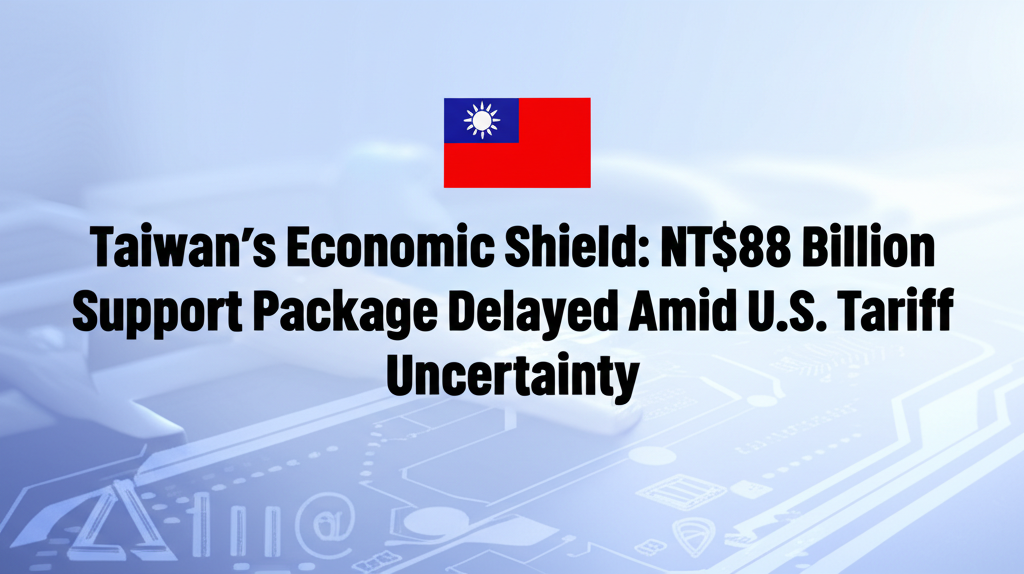Taiwan's Economic Shield: NT$88 Billion Support Package Delayed Amid U.S. Tariff Uncertainty
Premier Cho Jung-tai Navigates Challenging Trade Waters, Focusing on Agricultural Resilience

Taipei, April 13 - The Taiwanese Cabinet has announced a delay in the release of the comprehensive details surrounding its NT$88 billion (US$2.72 billion) support package designed to buffer the nation's economy against the potentially damaging effects of increased U.S. tariffs. Premier Cho Jung-tai (卓榮泰) cited ongoing negotiations and uncertainties surrounding the evolving U.S. trade position as the primary reasons for the postponement.
The announcement came during Premier Cho's "industry listening tour," specifically during a meeting with edamame producers and traders in Pingtung County. This marks the fourth stop on his tour, demonstrating a commitment to understanding the challenges faced by various sectors.
The delay allows ministries and agencies more time to meticulously finalize the specifics of the support package, including the critical allocation of subsidies across different industries. This careful approach aims to ensure the package is both effective and equitable.
Talks between officials in Washington and Taipei commenced via video conferencing on Friday to address the "reciprocal tariffs" that were announced on April 2 by U.S. President Donald Trump. These tariffs, impacting goods from over 70 countries, initially included a 10 percent global levy imposed from April 5. Fortunately, a 90-day pause was declared by Trump.
The tariffs initially planned for Taiwan were set at 32 percent, significantly higher than neighboring economies like Japan (24 percent) and South Korea (25 percent). The most immediate impact was seen in the case of China, where tariffs of 125 percent, on top of an existing 20 percent levy, took effect on April 9.
During the Pingtung meeting, Wei Dong-qi (魏東啓), chairperson of the Taiwan Regional Association of Frozen Vegetable and Fruit Manufacturers, highlighted concerns about China's growing dominance in the edamame market, particularly its position as Japan's top supplier. He cited losses due to typhoons as a factor and expressed worries that the new tariffs could further disadvantage Taiwanese producers in the Japanese market, with China's increased focus on that market.
Chen Jung-hua (陳榮華), head of an association of contract edamame producers, urged the government to take steps to reduce the burden on edamame farmers, including negotiating lower rents on leased farmland and providing subsidies to help offset the increasing costs of fertilizer, equipment, and labor.
According to the Agriculture and Food Agency, Taiwan's edamame production in 2024 reached 77,258 metric tons, with 45 percent of the production being exported. Japan accounted for the bulk of exports (73 percent of 32,654 metric tons), followed by the United States at 19 percent.
The U.S. imports around 40,000 metric tons of frozen edamame annually, with China supplying the majority (70 percent) and Taiwan accounting for 10-15 percent.
The agency acknowledged that despite the new tariffs, Chinese edamame could still compete on price in the U.S. market due to significantly lower production costs.
Premier Cho emphasized that edamame is particularly vulnerable to the 32 percent tariff. The four-year support package, as outlined, will require legislative approval.
